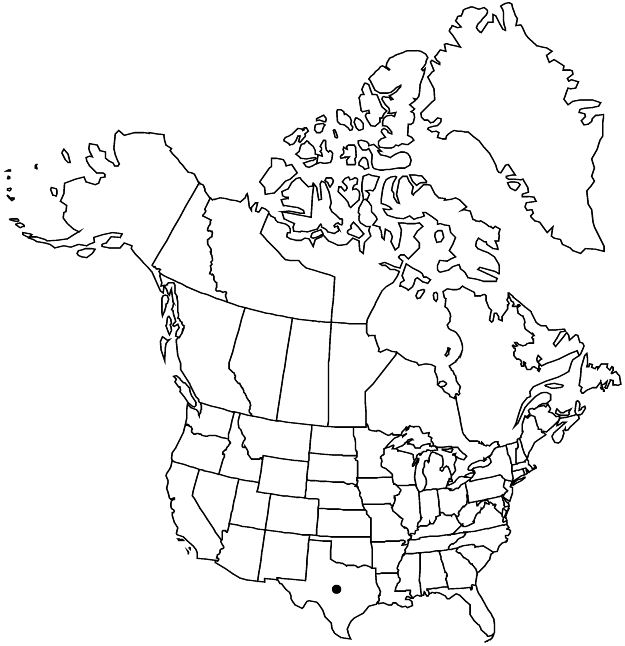Allowissadula lozanoi
Gentes Herbarum 11: 347. 1978.
Plants 1–1.5 m; herbage densely, closely tawny-yellowish, roughly stellate-hairy, not glandular. Leaf blades ovate to transversely ovate, unlobed or with low hiplike lobe on either side, 5–13 cm, base mostly open-cordate. Inflorescences usually dense or open cymes, sometimes solitary flowers. Flowers: calyx campanulate, densely tawny-hairy, strongly 10-ribbed at base, 8–12 mm, subequal to fruits, lobes keeled, ovate to deltate-ovate, (3–)4–8 × 4–6 mm; corolla yellow to orange-yellow, 13–20 mm; staminal column to 12 mm including filaments. Mericarps strongly dorsolaterally constricted, 7.5–10 mm including dorso-apical apiculus or spur 0.5–2 mm, densely tawny stellate-hairy, endoglossum narrow, stout, spearlike, nearly reaching ventral suture. Seeds grayish with reddish-brown raphe, 2.7–3 mm. 2n = 16.
Phenology: Flowering May–Oct.
Habitat: Mostly clay soil, open scrub or waste places
Elevation: 10–200 m
Distribution

Tex., Mexico (Nuevo León, Tamaulipas).
Discussion
Allowissadula lozanoi occurs east and south of the Edwards Plateau through the southern Texas coastal plains into northeastern Mexico.
Selected References
None.